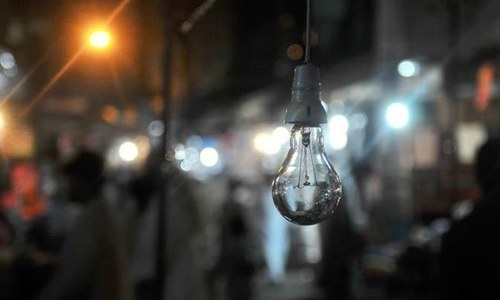ISLAMABAD: The government is reported to have made extra payments of about Rs956 billion to the independent power producers (IPPs) over a period of 10 years — more than the $6bn loan to be obtained from the International Monetary Fund (IMF), the convener of a parliamentary committee said on Tuesday.
Senator Nauman Wazir Khattak, the convener of the sub-committee of the Senate Standing Committee on Power, said in a statement that in-depth analysis of the IPPs’ agreements with the help of experts has concluded that the IPPs should have earned Rs400bn under the agreement, but they have made Rs1,400bn profits. “This is all visible on Nepra website,” he said.
The National Electric Power Regulatory Authority (Nepra) and the IPPs, however, challenged these observations, saying the conclusions were based on misconceptions.
Nepra, power companies challenge the observations, saying conclusions are based on misconceptions
Senator Khattak of the Pakistan Tehreek-i-Insaf (PTI) said that eight IPPs were analysed for an average duration of five years. Surprisingly, on an average, these IPPs were earning Rs2.3bn per year over and above the approved 15 per cent profit by the regulator.
“As per GoP Policy, they were entitled for a profit of Rs717 million per annum, however, they were on average earning Rs3,106m per annum, hence making an illegal profit of Rs2,389m per annum,” he said.
Based on this, the senator observed that for all 40 thermal power stations, the government has paid Rs955.7bn extra to the IPPs in 10 years. This is the biggest landmine laid by previous governments for the PTI government as highlighted by federal Power Minister Omar Ayub Khan, according to the senator.
Senator Khattak demanded that these extra payments be recovered from the IPPs and if dividend had been paid out, then the same be recovered from their shareholders.
A Nepra team led by member from Khyber Pakhtunkhwa Bahadur Shah contested these claims and noted that the senator appeared to have been misled and was mixing internal rate of return with return on equity.
Mr Abid Lodhi, chief of the Central Power Purchasing Agency, also supported the Nepra’s viewpoint.
However, Senator Khattak said it appeared the regulator was defending the IPPs. He said Nepra should be cautious in its approach because any wrong answer to the sub-committee’s questions would be treated as fraud.
A spokesperson for the IPPs Advisory Council, Dr Fatima Khushnood, while commenting on the issue told Dawn that Nepra had approved 15pc dollar-based internal rate of return for IPPs over the period of 25 years and return on equity component of capacity purchase price was also calculated on the same basis.
Published in Dawn, July 10th, 2019














































